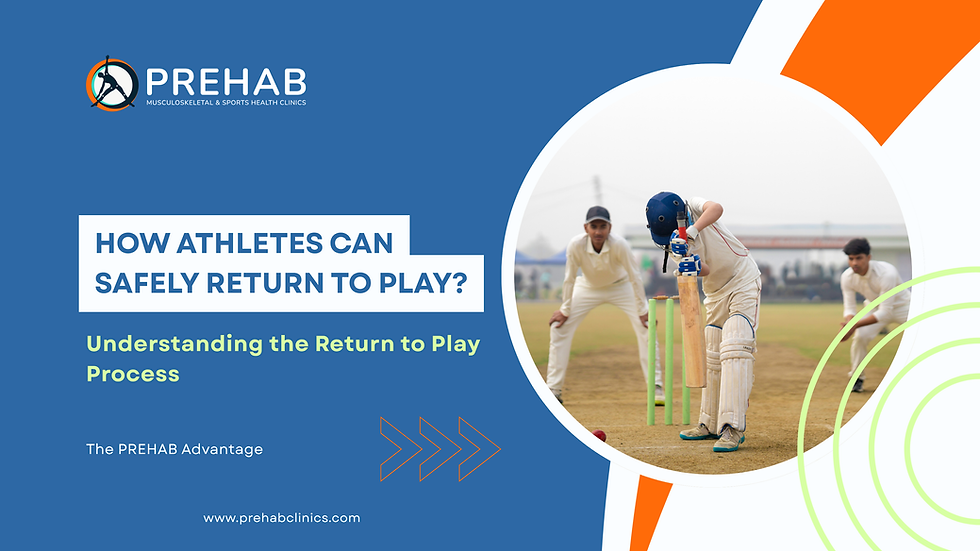Empowering Women with PCOS: The Role of Reformer Pilates
- Prehab Healthcare
- Apr 17, 2025
- 3 min read
Updated: Jul 11, 2025
Polycystic Ovary Syndrome (PCOS) is often spoken about in terms of irregular periods, acne, and hormonal imbalances. However, beneath the surface lies a complex condition that affects far more than just reproductive health. It influences insulin sensitivity, mental well-being, weight regulation, and even how the body moves and feels.

Understanding PCOS through a Movement and Lifestyle Lens
When viewed holistically, PCOS is not merely a hormonal disorder. It is a condition that influences how the body functions, recovers, and responds to stress. The hormonal imbalances associated with PCOS disrupt insulin regulation and increase inflammation. This disruption can lead to various symptoms, such as fatigue, weight fluctuations, bloating, mood shifts, and muscle tension. These symptoms significantly impact how a woman absorbs nourishment, adapts to movement, and engages with physical activity.
As a result, many individuals with PCOS struggle with poor postural control, joint instability, and low energy levels. This makes high-impact or traditional forms of exercise feel overwhelming and unsustainable. This is where Reformer Pilates becomes especially valuable. It offers a supportive, low-impact, and adaptable form of movement that gently addresses these physical challenges. When integrated with strength training and balanced nutrition, Pilates not only enhances physical function and energy but also plays a crucial role in improving overall well-being. Together, these lifestyle interventions form a powerful foundation for managing PCOS with more resilience and ease.
Pilates for PCOS — Movement that Heals
Pilates, particularly Reformer Pilates, provides a unique solution. It emphasizes mindful movement, alignment, control, breath, and gentle strength-building. Unlike traditional workouts that push the body, Pilates supports it. This makes it especially beneficial for women managing PCOS, as their symptoms and energy levels can vary daily.
Through consistent practice, Pilates helps to:
Rebuild foundational strength and stability.
Improve posture and joint support.
Ease the physical toll of inflammation and chronic fatigue.
Regulate the nervous system through breath-focused movement.
Foster a positive, connected relationship with one’s body.
The Reformer machine adds spring resistance and feedback. This encourages better control without overloading the joints or nervous system. Sessions can be adapted based on how you feel, whether you’re experiencing bloating, fatigue, or low mood. This adaptability makes Pilates a sustainable long-term practice.
Then there’s the mindset shift that Pilates encourages. Reformer Pilates invites you to slow down, tune in, and work with your body rather than against it. This is especially healing for individuals who feel disconnected, frustrated, or let down by their bodies due to PCOS. It’s a practice that encourages trust— in your body, in the process, and in your own strength.

Finding What Works for You
Every woman’s journey with PCOS is unique. Her approach to movement and recovery should reflect that individuality. While strength training and nutrition are essential components of PCOS management, Reformer Pilates offers a supportive, adaptable practice that can complement other forms of training or serve as a sustainable starting point. Feeling better doesn’t always come from doing more. Sometimes it begins with moving more mindfully, building consistency, and choosing forms of exercise that work with your body.
The Importance of Nutrition
Nutrition plays a critical role in managing PCOS. A well-balanced diet supports hormonal health and overall well-being. It is helpful to focus on whole foods, lean proteins, healthy fats, and low-glycemic carbohydrates. These choices aid in stabilizing blood sugar levels and reducing inflammation in the body.
Incorporating balanced nutrition alongside Reformer Pilates creates a robust strategy for managing PCOS. By fueling your body with the right nutrients, you enhance your energy levels and support your physical activities.
Creating a Positive Mindset
Mindfulness and mental well-being are paramount when dealing with PCOS. Engaging in practices like meditation or yoga can enhance the benefits of your physical routine. These practices allow you to center your thoughts, reduce stress, and cultivate a more positive relationship with your body.
At PREHAB, we take a holistic and personalized approach to PCOS care. We integrate strength training, nutritional guidance, and Reformer Pilates to support hormonal health, restore physical function, and help women feel more connected to their bodies. It’s not just about managing symptoms; it’s about empowering you to move, feel, and live better.

---wix---



Comments